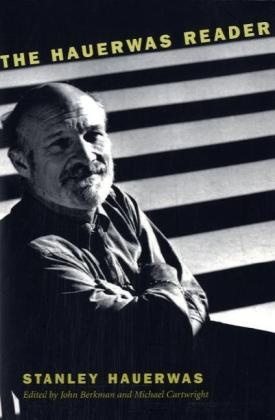Read more
Informationen zum Autor Stanley Hauerwas is Gilbert T. Rowe Professor of Theological Ethics in the School of Divinity and Professor of Law at Duke University. In addition to having published over three hundred scholarly articles to date, he is the author or editor of more than thirty books, including Resident Aliens: Life in the Christian Colony, Wilderness Wanderings: Probing Twentieth-Century Theology and Philosophy, and Christians among the Virtues: Theological Conversations with Ancient and Modern Ethics. John Berkman is Assistant Professor of Theology at The Catholic University of America. Michael G. Cartwright is Associate Professor of Philosophy and Religion at the University of Indianapolis. Stanley Hauerwas is Gilbert T. Rowe Professor of Theological Ethics in the School of Divinity and Professor of Law at Duke University. In addition to having published over three hundred scholarly articles to date, he is the author or editor of more than thirty books, including Resident Aliens: Life in the Christian Colony, Wilderness Wanderings: Probing Twentieth-Century Theology and Philosophy, and Christians among the Virtues: Theological Conversations with Ancient and Modern Ethics. John Berkman is Assistant Professor of Theology at The Catholic University of America. Michael G. Cartwright is Associate Professor of Philosophy and Religion at the University of Indianapolis. Klappentext Stanley Hauerwas is one of the most widely read and oft-cited theologians writing today. A prolific lecturer and author, he has been at the forefront of key developments in contemporary theology, ranging from narrative theology to the “recovery of virtue.” Yet despite his prominence and the esteem reserved for his thought, his work has never before been collected in a single volume that provides a sense of the totality of his vision. The editors of The Hauerwas Reader, therefore, have compiled and edited a volume that represents all the different periods and phases of Hauerwas’s work. Highlighting both his constructive goals and penchant for polemic, the collection reflects the enormous variety of subjects he has engaged, the different genres in which he has written, and the diverse audiences he has addressed. It offers Hauerwas on ethics, virtue, medicine, and suffering; on euthanasia, abortion, and sexuality; and on war in relation to Catholic and Protestant thought. His essays on the role of religion in liberal democracies, the place of the family in capitalist societies, the inseparability of Christianity and Judaism, and on many other topics are included as well. Perhaps more than any other author writing on religious topics today, Hauerwas speaks across lines of religious traditions, appealing to Methodists, Jews, Anabaptists or Mennonites, Catholics, Episcopalians, and others. Zusammenfassung Stanley Hauerwas is one of the most widely read and oft-cited theologians writing today. A prolific lecturer and author! he has been at the forefront of key developments in contemporary theology! ranging from narrative theology to the "recovery of virtue." This book represents all the different periods and phases of Hauerwas' work. Inhaltsverzeichnis List of Abbreviations ix Acknowledgments xi Part I: Editorial Introductions John Berkman, An Introduction to The Hauerwas Reader 3 William Cavanaugh, Stan the Man: A Thoroughly Biased Account of a completely Unobjective Person 17 Part II: Reframing Theological Ethics Who Are Christians? The Christian Story 1. How "Christian Ethics" Came to Be (1997) 37 2. On Keeping Theological Ethics Theological (1983) 51 3. A Retrospective Assessment of an "Ethics of Character": The Development of Hauerwas's Theological Project (1985, 2001) 75 4. Why the "Sectarian Temptation" Is a Misrepresentation: A Response to James Gustafson (1988) 90 5. Reforming Christian Social Ethics: Ten Theses (1981) 111 6. Jesus and ...

